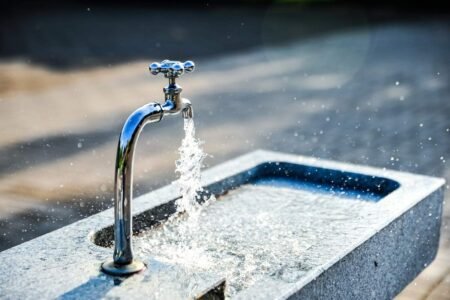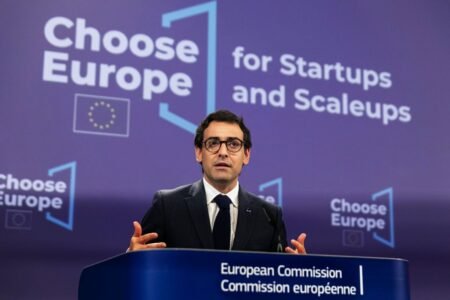The European Commission presented on 29 November 2017 measures to ensure that intellectual property rights are well protected, thereby encouraging European companies, in particular SMEs and start-ups, to invest in innovation and creativity.
Advertisement
Why is the Commission presenting initiatives on Intellectual Property Rights (IPR)?
Intellectual Property Rights (IPRs) are one of the principal means through which companies, creators, researchers and inventors generate returns on their investment in knowledge and creation. Patents, trademarks, geographical indications, designs and copyrights are a key incentive to creativity and innovation, and improve consumer choice and job creation in Europe’s economy (see also Factsheet – The protection of Intellectual Property).
IPR-intensive sectors account for around 42% of EU GDP (worth some EUR 5.7 trillion annually), generate 38% of all jobs, and contribute to as much as 90% of EU exports. As companies increasingly compete on innovation, creativity and quality in the global economy, the protection of IPR is essential for them in particular for SMEs which do not have the resource to manage large IP portfolios or engage on protracted litigation. And yet, according to a recent study, counterfeit and pirated goods account for 2.5% of global trade with a tendency to increase. 5% of all imports into the EU are counterfeit and pirated goods, corresponding to an estimated EUR 85 billion in illegal trade (see also Factsheet – Why Intellectual Property Rights matter).
To fully play its role in promoting investment in innovation and growth, the IPR system needs to be balanced, efficient and properly enforced in the EU, at our borders and internationally. The Commission is presenting measures for a more efficient and predictable judicial enforcement regime in the EU. In doing so, the Commission is responding to the increase in IP infringements across the globe, and to the need to adapt enforcement actions to the requirements of today’s digital age.
How does the Commission plan to step up the fight against counterfeiting and piracy?
The Commission’s approach is based on:
– depriving commercial-scale IP infringers (the ‘big fish’ rather than individuals) of the revenue flows that make their criminal activity lucrative (“follow the money”);
– clarifying interpretation issues that have arisen in the application of the 2004 Directive on the enforcement of intellectual property rights (IPRED);
– supporting industry-led initiatives to combat IP infringements, including work on Memoranda of Understanding and exploring the potential of new technologies such as blockchain to combat IP infringements in supply chains;
– strengthening efforts to fight IP infringements at a global scale, by promoting best practices and stepping up co-operation with third countries, and offering more targeted assistance to national customs authorities in the new Customs Action Plan and enhancing administrative cooperation in the fight against counterfeiting.
How will the guidance on the Directive on the enforcement of intellectual property rights help?
The 2004 Directive on the enforcement of intellectual property rights (IPRED) requires all EU countries to apply effective, dissuasive, and proportionate remedies and penalties against those engaged in counterfeiting and piracy, and aims to create a level playing field for right holders in the EU. It means that all EU countries have a similar set of measures available for right holders to defend their intellectual property rights.
A comprehensive evaluation of the Directive based on studies and consultations concluded that it is still fit for purpose. The tools provided for by the Directive have helped to better protect IPR in civil courts. It has also proven to be a relevant instrument for facilitating enforcement of different IPRs in the digital era.
However, there are still differences in the way the Directive is applied across Member States, which affects its effectiveness. Some differences are due to different national civil procedural law frameworks and the variety of legal and judicial traditions. Some substantial divergences result from a lack of uniform interpretation of the Directive.
The Commission is now offering guidance for competent courts, legal practitioners and right holders to clarify its views on the provisions that are interpreted and applied in a divergent manner in the different Member States. With this guidance, the Commission increases legal certainty for all stakeholders and facilitate civil enforcement across the EU straight away, without the need for a lengthy legislative process.
The Commission will continue working closely with national experts, including national judges, to identify areas where further practical guidance, based on best practice experiences, would be useful, for example on calculation of damages and type of evidence needed to compensate for the harm caused by IP infringements.
Issues raised by stakeholders in the context of the evaluation of the IPRED Directive which actually fall outside of the scope of the Directive, such as the role of online platforms and liability issues, are being handled separately, for example with the recent Commission guidelines for online platforms to tackle illegal content.
Which areas will the IPRED guidance help clarify specifically?
The guidance provides clarification where there have been diverging interpretations on IPRED provisions in the Member States, not only based on the case-law of the EU Court of Justice but also on national “best practices”. For instance:
– The guidance makes it clear that the possibility to issue an injunction against an online platform on the basis of IPRED does not depend on the intermediary’s liability for the infringement (as under the E-commerce Directive). The guidance also explains that by means of such injunctions against intermediaries, national courts may issue injunctions imposing specific monitoring obligations.
– Some of the measures in IPRED only apply to ‘commercial scale’ infringements. The guidance clarifies the concept of ‘commercial scale’ which should be interpreted taking into account qualitative elements, such as the commercial advantage of the infringements, and quantitative elements, such as the number/extent of the infringements.
– The guidance clarifies that a party claiming compensation for damages calculated as a lump sum may request not only compensation for material damage, but also for moral prejudice.
– The guidance encourages the use of new instruments such as protective brief (defendant informs the court before an infringement case has formally been lodged) and dynamic injunctions (e.g. against repeat infringers).
What can be achieved via voluntary agreements?
Voluntary cooperation makes a significant contribution to curbing online counterfeiting and delivering efficient solutions.
The Memorandum of Understanding (MoU) on the Sale of Counterfeit Goods via the Internet, signed in 2011 between the right holders and internet platforms, has already yielded significant results. Since the MoU came into effect, a substantial number of offers for counterfeit products of right owners participating in the initiative have been removed from online platforms. However, given that IP infringing goods increasingly find their way onto the EU Single Market, more persistent efforts of all signatories and newcomers are needed.
The Commission is working with representatives of the advertising industry to finalise a new industry MoU with the aim to cut revenue streams from advertising on IP infringing websites. Online advertising is a major source of income for IP infringing sites, and efforts to reduce the flow of ad revenue to such sites have been underway at national level in a number of countries.
Work is also in progress on a MoU covering payment services which are essential for IPR-infringing offers, and on a MoU for the transport and shipping industries to prevent their services being used by counterfeiters.
What other actions is the Commission proposing to facilitate civil enforcement?
As part of the comprehensive and balanced package of measures to further improve the enforcement of IPR, the Commission is encouraging specialisation of national judges for IP and the systematic publication of national judgements in IP enforcement cases. Together with the European Union Intellectual Property Office (EUIPO), the Commission is also facilitating wider use of alternative dispute resolution to settle IP disputes.
What is the link between the current initiative and the copyright reform and the Commission Communication “Tackling Illegal Content Online”?
The copyright proposal the Commission adopted in September 2016 only concerns copyright, while the current initiative provides for a comprehensive set of measures aiming at improving the way IPRs are applied and enforced across the EU, including not only copyright but also other IP rights such as patents or trademarks.
On 28 September 2017, the Commission adopted the Communication on “Tackling illegal content online: towards enhanced responsibility of online platforms” to increase the proactive prevention, detection and removal of illegal content in the online environment. The Commission proposes common tools to detect, remove and prevent the reappearance of such content online. Today’s IP initiative supports the recommendations presented in the Tackling Illegal Content Online Communication. In particular, the Commission calls on the industry to undertake further due diligence steps to combat IPR infringements. The Commission will also further engage with industry to improve and expand voluntary agreements to fight IP infringement and work on promoting and facilitating dedicated MoUs involving right-holders, internet platforms, advertising companies, shippers and payment service providers and continue to monitor how these MoUs make a difference in practice.
What will change in the cooperation with third countries in the area of IP?
Based on the good experience of the EU-China IP Key programme, and the technical cooperation carried out in the ASEAN region, the Commission is expanding these relations geographically and launching in parallel three IP Key programmes dedicated to IPR in China, the country members of the ASEAN region in South East Asia and all the countries of Latin America. These IP Key programmes are there to support the EU businesses and stakeholders who are already in the selected third countries or trying to access these new markets.
What is the aim of the “IP Market Watch List”?
The Commission, in collaboration with the European Observatory on Infringements of Intellectual Property Rights (EUIPO Observatory), will set up an IP Markets Watch List. The watch list will identify online and physical markets outside the EU that are reported to engage in, or facilitate, substantial IPR infringements. The list should promote solutions by market owners and operators to reduce the availability of infringing goods and services, as well as raise consumer awareness about the risks of counterfeiting and piracy.
The Commission will launch a public consultation to collect information on these markets (location, volume of traffic, types of infringement goods or services, estimated harm for right holders, possible enforcement measures etc.). The data verified with the help of the Observatory will be used in the selection of the markets to be placed on the list. The first IP Markets Watch List is to be published in the second half of 2018 and will be updated regularly.
What are Standard Essential Patents and why is the Commission taking action?
Standard Essential Patents (SEPs) are of strategic importance for the successful digitisation of our society and economy, where objects and people are interconnected through communication networks and report about their status and/or the surrounding environment, such as in the case of the Internet of Things (IoT).
SEPsare patents that cover technology essential to implement a specific standard or technical specification needed to allow industry participants to create interoperable products such as mobile phones or other connected devices that use, for instance, the 3G or 4G networks. Without formal standardisation and SEPs, there would be, for example, no connected vehicles. Tele-diagnosis or remote operations with distant hospitals or the exchange of patient information would not be possible either.
Manufacturing standard-compliant products such as connected devices often require using connectivity technologies that are covered by one or more SEPs. The standards in question are agreed by standard-setting organisations such as ETSI (European Telecommunications Standards Institute), which use open, impartial, transparent, consensus based processes available for participation of interested parties, such as patent holders, industry and research centres, and users and consumers. Such standard-setting organisations act upon the principle of self-declared patents from industrial players. Once the standard is agreed, the patents composing it are considered as essential for the functioning of the standards and therefore become Standards Essential Patents.
Europe’s potential tolead in global technological innovation and fully grasp the potential of 5G and the Internet of Things (IoT) is being held back by a lack of transparency and predictability about the conditions under which SEPs are to be declared, licensed and enforced. Navigating the SEPs landscape may pose particular challenges for smaller players, including SMEs and start-ups in the IoT sector for example.
– Firstly, the declaration process of SEPs in some Standard Determining Organisations (SDOs) does not guarantee sufficient access to information, nor is there a sufficient scrutiny on what patents should be considered as essential to a standard and why.
– Secondly, there are divergent opinions as regards the interpretation of FRAND. FRAND (Fair, Reasonable and Non Discriminatory) refers to the terms under which the owners of SEPs commit to make the concerned technology available to implementers of the standard. When an owner of the patented technology (SEP holder) and an implementer of the standard negotiate a licence, it should be on FRAND terms. FRAND is often referred to as a two-way street, meaning that it involves obligations from the two negotiating parties to conduct the negotiations in good faith. FRAND terms are not only about the price to be paid to access the technology, but they can refer to other specific licensing conditions including the scope of rights, how the payment will be made, possible cross licenses, and others.
– Thirdly, more legal certainty is needed when enforcing SEPs against alleged infringers. The recent Court of Justice of the European Union judgement Huawei vs ZTE provided clarity on certain aspects and this Communication provides additional specific guidance.
The Commission adopts for the first time a holistic approach on SEPs in Europe and presents its view on some aspects of the appropriate licensing framework for SEPs with the aim to contribute to a sustainable, balanced and efficient standardisation ecosystem for businesses targeting 5G and the Internet of Things.
What guidance does the Commission offer for the SEPs system?
On the basis of several studies on SEP licensing, public consultations and stakeholder dialogue, the Commission offers guidance and recommendations for a balanced and efficient SEPs system where two objectives are reconciled: product manufacturers can access technologies under transparent and predictable licensing rules; and at the same time patent-holders are rewarded for their investments in R&D and standardisation activities so that they are incentivised to offer their best technologies for inclusion in standards.
The Communication achieves this dual objective, namely efficiency and balance, by covering three key aspects:
- A more transparent environment for negotiations between SEP holders and potential licensees: improving the quality of information recorded in standard-setting organisations; making it accessible for patent holders, implementers and third parties; reviewing the quality of declarations concerning patent applications for the final standard and fostering a higher degree of scrutiny on essentiality claims. To facilitate the introduction of an appropriate scrutiny mechanism, a pilot project will be launched in selected technologies;
- Basic valuation principles for SEPs: helping the parties arrive at a common understanding of what are fair licensing conditions, through good faith negotiations, on a case by case basis, by providing principles for the interpretation of FRAND licensing, including the non-discrimination principle. The Commission calls on stakeholders to pursue sectoral discussions with a view to establishing efficient licencing practices;
- A balanced and predictable enforcement regime: providing guidance for right holders and implementers in relation to enforcement of SEPs, facilitating the roll-out of mediation and alternative dispute resolution tools while putting safeguards against abusive litigation practices.
With this Communication, the Commission aims to improve the efficiency and fairness of the overall standardisation ecosystem. While the main responsibility to improve the licensing of SEPs lies with market participants, the Commission aims to facilitate balanced, market-based solutions by outlining principles that SEP holders and implementers may wish to consider. The Commission is not promoting interests of any side of the industry but is looking at the matter in particular from the perspective of innovative SMEs and new market entrants in 5G and the Internet of Things.
Why is standardisation important for 5G in Europe and how does this Communication relate to it?
ICT standards ensure the interoperability of digital technologies and are the foundation of an effective Digital Single Market. They guarantee that technologies work smoothly and reliably together, provide economies of scale, foster research and innovation and keep markets open.
The Communication is in particular important for Internet of Things and 5G standardisation in Europe as it provides for a clearer framework to ease the development and the licensing of patented technologies that enable interconnection and connectivity. Companies participating in the standardisation process, as well as implementers, have all an interest in operating under a more transparent and balanced approach for the development and licensing of 5G technologies.
Does the Communication interfere with the development of Open Source solutions?
In the context of current technology evolution, open source software implementations become more and more important, notably for ICT standardisation. The Commission supports the development of Open Sources solutions. The integration between open source based solutions and interoperability standards is a win-win situation: on the one side the alignment of open source and standardisation can speed up the standards development process and the take-up of ICT standards (especially for SMEs) and on the other side standards can provide for interoperability of open source software implementations.
FRAND can also accommodate royalty-free concepts. The Commission will further work with stakeholders, open source communities and SDOs for successful interaction between open source and standardisation.
What are the next steps?
The Commission will work with stakeholders, where relevant, on the implementation of the actions proposed in the Communication and gather further information on open questions. It will create an expert group to gather further expertise on issues such as licensing practises, sound IP valuation and FRAND determination. In addition, the Commission will launch a pilot project on the evaluation of the essentiality of SEPs. The Commission will take stock of progress achieved and assess the need for further measures to ensure a balanced framework for SEP licensing.
Source: European Commission







